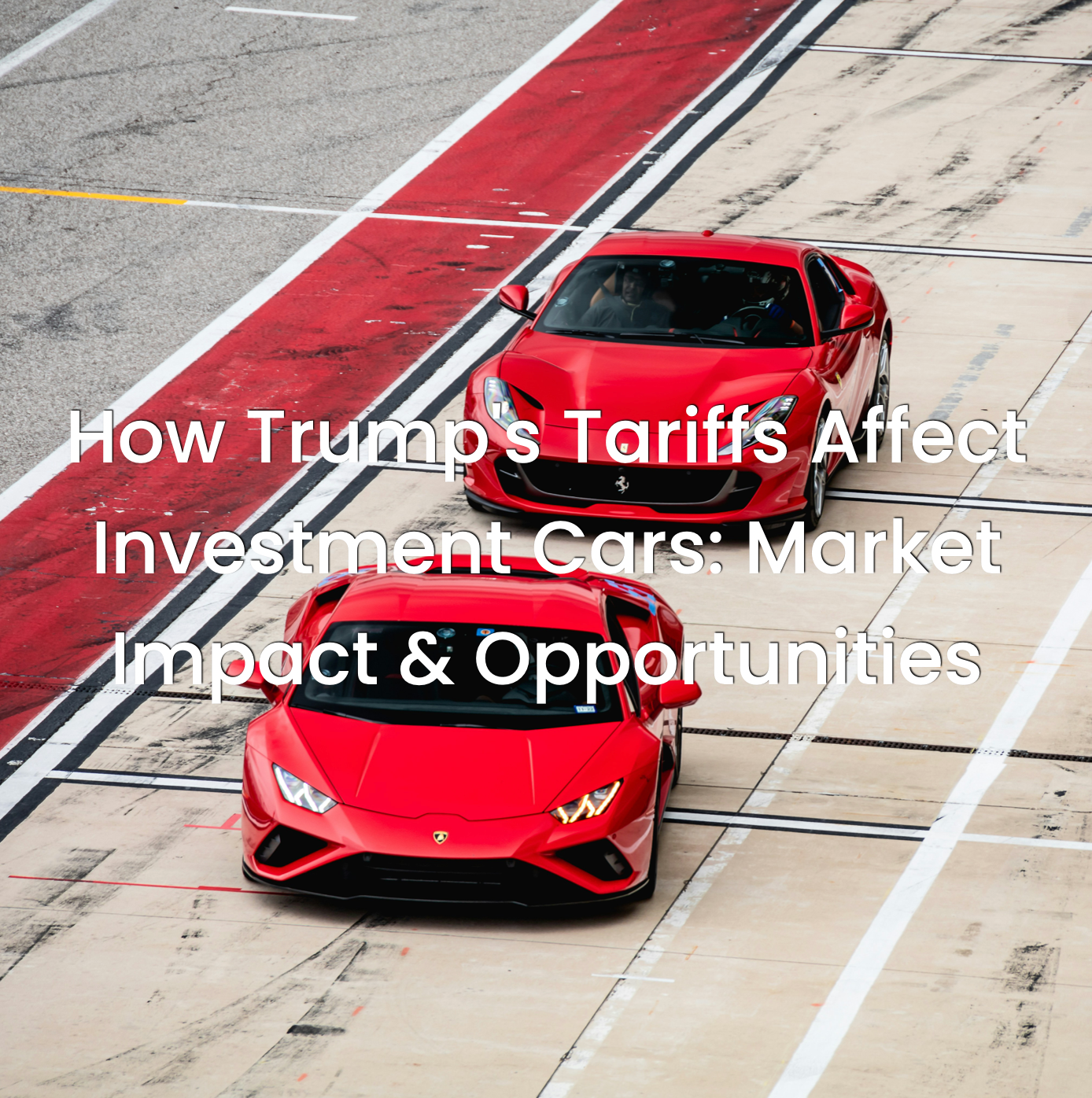How Trump's Tariffs Affect Investment Cars: Market Impact & Opportunities
President Donald Trump announced a 25% tariff on imported cars and auto parts. These tariffs, set to take effect on April 3rd for vehicles and May 3rd for auto parts, aim to boost domestic manufacturing. However, they are expected to significantly impact the car market, affecting both new car buyers and investment car owners.
How the Tariffs Affect New Car Buyers
For consumers looking to buy a new car, these tariffs mean higher prices. Car makers that rely on imported components will pass the increased costs onto buyers. Industry experts estimate that U.S.-made cars could see price hikes of around $3,000, while vehicles imported from countries like Canada and Mexico could become even more expensive—rising by as much as $6,000.
Additionally, the cost of vehicle repairs is also set to rise. Since many car repair shops use imported parts, tariffs will drive up expenses, leading to higher maintenance costs and increased insurance premiums for car owners. This price surge is likely to make buying and maintaining a new vehicle less affordable for many Americans.
Why Investment Cars Could Benefit
While the tariffs spell trouble for new car buyers, they could have a positive impact on investment cars. As new cars become more expensive, buyers may turn to the used and collectible car market, driving up demand for investment-grade vehicles. Historically, when new car prices rise, classic and rare cars often see an increase in value.
Collectors and investors who already own sought-after models could see their vehicles appreciate as a result of reduced supply and growing demand. The tariffs may encourage more people to consider cars as assets, further fueling the investment car market.
Why you shouldn't worry
Trump’s tariffs on imported cars and auto parts will make new vehicles more expensive, placing financial pressure on everyday consumers. However, for those who own classic or investment-grade cars, these tariffs could create an opportunity for increased value. As the cost of new cars rises, the market for investment cars may become even more attractive, making them a potentially lucrative asset in the coming years.
For car investors, now might be the perfect time to reassess their collection and take advantage of shifting market trends. Stay informed and position yourself wisely in the download our free Appreciating Automobiles guide for 2025 and join the Autofolio mailing list click here
Interested to find out more about investment cars and Autofolio?
Investment Cars 2025 click here
2025 Appreciating Automobiles report (Free) click here
Buy an Investment Car click here
Sell Your Investment Car click here


Share:
Investment Cars That Are The Last of an Era
Porsche GT3 RS Production Numbers Are Ballooning, But One GT3 RS Rules Them All…